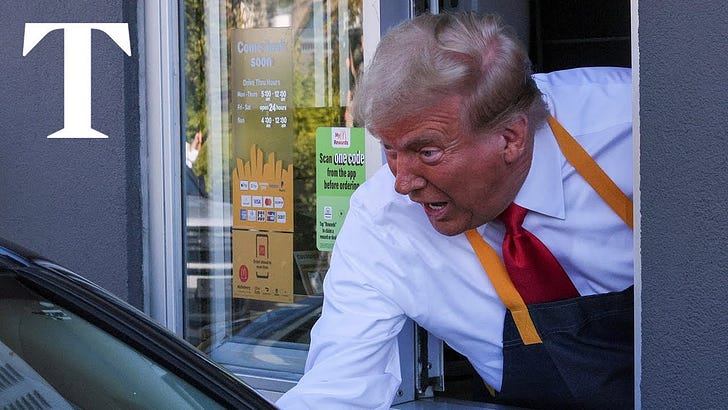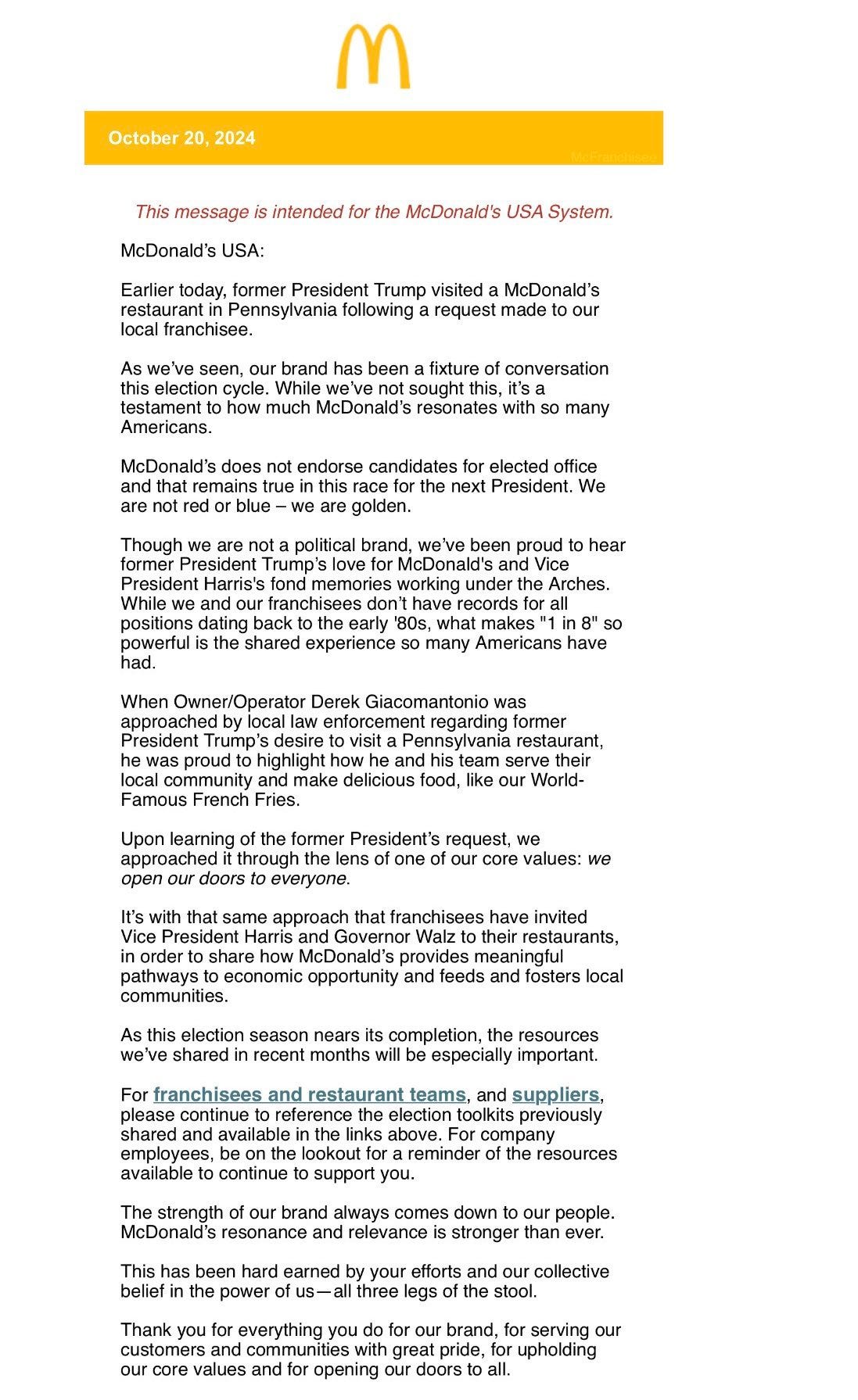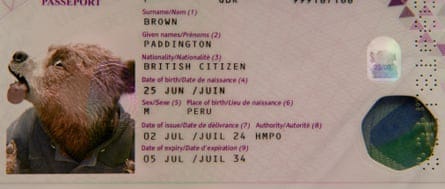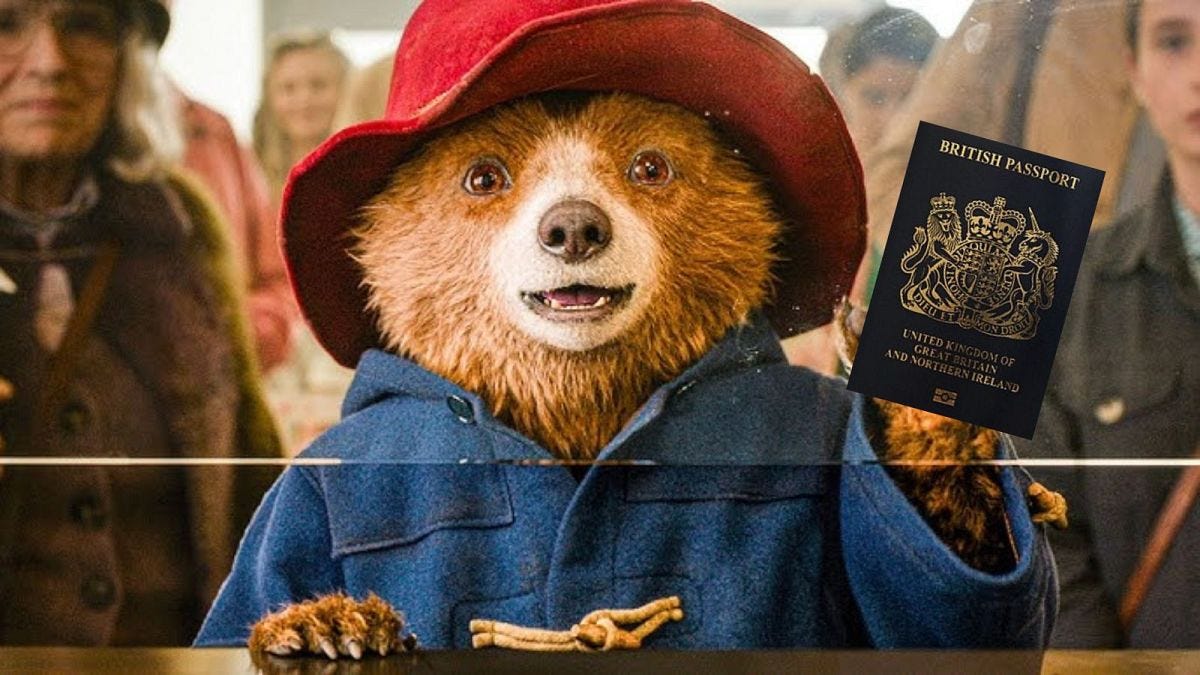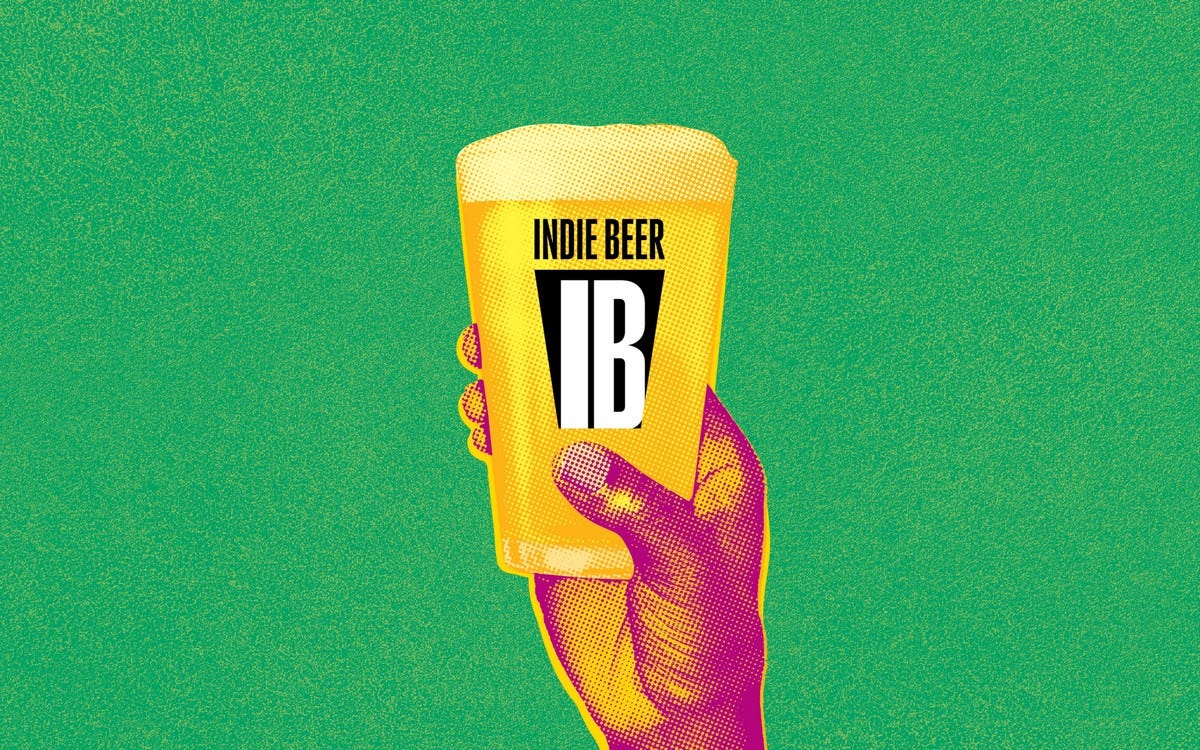Borkowski Media Trends: Trump x McDonald's, Paddington Bear & 'Craft Beer'
Analysis of Trump & McDonald's collab, a Home Office stunt!? And beer's branding problem
McDonald’s new clown mascot
Donald Trump manifested his dream brand collaboration this week, doing a shift at McDonald’s where he was filmed serving fries to customers. Beyond Trump’s famed delectation of the Golden Arches’ oleaginous wares, and the fact that his rival for the US presidency Kamala Harris has made a big deal about her student job there, from his campaign’s perspective it makes total sense.
Trump is offering a brand of ethno-nationalism in the euphemistic guise of the traditionalist Americana of which McDonald’s is the perfect symbol.
It’s more American than apple pie, ubiquitously popular, the zenith of consumer capitalism, and despite a smattering of ESG lip-service, it’s a brand rarely accused of wokery.
Trump’s shift also projects the kind of everyman (or at least everyman-adjacent) image belied by his status as a nepo-billionaire who literally lives in a golden castle.
But in American politics as in many modern communications scenarios, the image often trumps(!) the truth.
The Trump campaign may be a blunt instrument, but it inherently understands the American public’s simplistic interactions with contemporary media. For many, the image of Trump serving fries at McDonald’s won’t just demonstrate the values above, but will be read as an endorsement of Trump by McDonald’s; one powerful enough to shift the balance of the Dems’ dominance of the pop cultural space, symbolised this week by Kamala Harris’ crucial capture of the all-important ‘Juggalo vote’.
This, however, is precisely why the stunt is a problem for McDonald’s. Part of the success of the franchise model is the sort of (all-American) freedom which makes it hard to prescribe strict corporate communications protocols for individual branches of the restaurant.
But this also plainly meant that McDonald’s head office didn’t (whatever they say) know the stunt was happening, and its statement, though a proficient messaging exercise was clearly rushed and reactive.
The results have been negative for both brand and franchisee. News that McDonald’s stock tanked on Monday was reported more widely than usual and (incorrectly) reported to have been linked to Trump’s visit. An e.coli outbreak that would have been bad news on the best of days, is also now making global headlines because of its coincidental proximity to the Trump visit. The individual McDonald’s franchise that hosted Trump is also now being bombarded with negative Yelp reviews.
The media coverage illustrates the damage. Meltwater data shows that mentions of McDonald’s spiked 12x higher than normal as a result of Trump’s visit, with 73% of non-neutral sentiment negative – 19% higher than last week. Trump was the top keyword, with McDonald’s and e-coli also being mentioned together nearly 70,000 times in the media and on socials – fifty times more often than in the whole of 2023. Mentions of McDonald’s share price also spiked over 40,000 with 95% non-neutral negative sentiment; the week before McDonald's share price was mentioned just 2,000 times and sentiment was 52% positive.
As brand collaborations go, it’s a one-sided reminder of why major consumer brands often do their best to stay out of politics.
Notorious ‘Illegal Immigrant’ finally granted passport
In a rare moment of efficiency, the Home Office turned around a passport application in record time. The passport was for an applicant ‘known to have arrived in the UK via a clandestine route’ using a small boat without a VISA. Some would call this an illegal immigrant.
Unlike so many other asylum seekers who have braved dangerous boat crossings to seek safety on UK shores only to be held in limbo by bureaucratic red tape, this illegal immigrant was treated to a warm welcome, and despite not satisfying the legal criteria for citizenship, has received his document. So why the sudden leniency from the Home Office?
Filmmakers of Paddington Bear 3 requested a replica passport for the bear as a prop for the upcoming film in which he travels to Peru. In an uncharacteristically amusing twist, the Home Office provided an official document, and the producers sold the story to the press. The stunt has been met with mixed reception, with some fans welcoming the gesture as a sweet nod to the bear’s iconic place in the British canon. However, cynics have critiqued the appropriateness given the Home Office’s negative reputation around asylum seekers.
The Guardian’s Simon Hattenstone wrote on X, “If only the Home Office showed similar compassion to others forced to flee their country as it has done to Paddington,” whilst another user joked that Paddington had been in the UK since 1958, making this “uncharacteristically speedy work by the Home Office”. It is not the first time Paddington has been the subject of Home Office affairs, with staff posting false deportation notices on internal boards in 2022 in protest of refugees being deported to Rwanda under the Conservative government.
Politically, the stunt could be interpreted as a soft power attempt to show a distinction between the Starmer government’s asylum policies and his predecessor’s Rwanda deportation flights. Politics aside, for the producers of Paddington 3, the passport has generated publicity around the new film due to be released in November 2024. The decision to make the passport public seems to have been a success.
The Indie Beer-volution
This week, a survey by the Society of Independent Brewers and Associates (SIBA) has sparked conversation on beer's branding problem, specifically 'Craft Beer'. It turns out 'Big Beer' has been exploiting that tag when SIBA revealed 40% of consumers believed Beavertown's Neck Oil was independent when, in fact, Heineken bought it in 2022, completing the takeover when it partially acquired Beavertown back in 2018. This may have been a calculated strategy for Heineken, but according to YouGov, consumers aren't happy. Over 75% feel misled, going beyond Beavertown/Heineken to include Camden Town Brewery/AB InBev and Fullers/Asahi, with a significant number of the British public thinking these are still independent.
While SIBA doesn't have the communication budgets or muscle to compete with 'Big Beer', using this survey to spark conversation across Linkedin, national outlets, and trade press is an excellent tactic. When people feel like they've been tricked by multinational corporations, it strikes a nerve, which presents an opportunity for change if well-executed.
SIBA is building on this momentum to change the 'Craft Beer' tag - one that is inherently confusing. As explained by Katie Mather in the Guardian, the term was often used to describe beer that wasn’t cask or a recognised brand, e.g. Eurofizz or Guinness. The lack of a universal definition for independent beer left enough room for the likes of Brewdog and household-name brands to exploit - especially the former which used its punk ethos to generate big business.
Now the industry is turning to the tag "indie beer" in a broad rebrand to buck this trend. With enough momentum, this is a campaign the British public will likely get behind - as a nation of beer lovers, we want quality. And when these large companies acquire smaller breweries, taste is sacrificed when cutting corners for mass production. It'll be interesting whether SIBA and the wider community can keep this up - it's a serious comms job.

